TEACHING & LEARNING PROCESS
The Department of Electronics and Communication Engineering offers high caliber teaching through the highly qualified and motivated teaching faculty members, who strive to imbibe concrete learning process through their dedication. The ECE department provides the state-of-the art laboratories that are equipped with the latest cutting edge technological equipment, hardware and software that are periodically calibrated using standard benchmarks. ECE dept has also got several smart room based classrooms fitted with Teaching Aids such as LCD Projectors, TV Projections to enable effective learning process among the students.
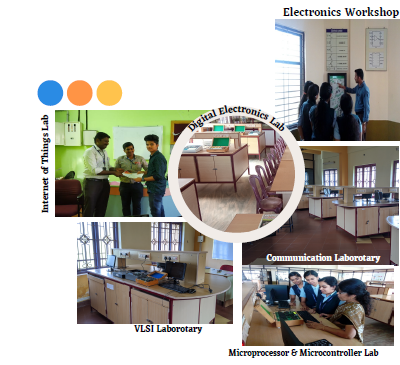
Figure: Various Laboratories ECE dept.
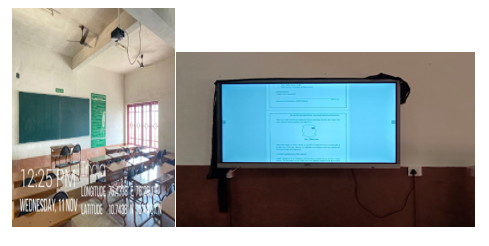
Figure: Classroom with ICT enabled facility
Following are the various pedagogical and instructional approaches for effective teaching process.
- Class room teaching: Class room teaching is initiated by a well-structured lesson plan which is developed by the concerned faculty and is screened by the HOD. All the faculty members are instructed to take up detailed introductory classes with a detailed discussion on course outcomes. Faculty members are also undertaking NPTEL online certification courses for upgrading their class room teaching skills. To further enhance effective learning environment in the class room meditation is practiced for 10 min in the first hour of all working days.
- Continues assessment in laboratory: Continues assessment methodology is implemented in all the practical courses, i.e., all the laboratories via daily experimental observations, daily performance and record submission. Viva voce is taken up and design of experiment is demonstrated before the experimentation, to ensure students understanding level on theoretical and practical concepts.
- Student Counselling: Counselling is done in the view of the student’s career, curricular and extracurricular activities. Faculties act as counsellors to guide and motivate student towards their career development.
- Contents beyond the curriculum: To enhance the course outcomes, additional experimentations have been incorporated in the laboratory courses and appropriate concepts in the theory classes have been also covered using several teaching learning methods.
- Lecture Notes: A detailed learning notes for each unit is prepared by respective course faculty according to the prescribed syllabus before the commencement of the individual semester class work.
- Question Bank: Question banks are prepared for each unit in the course based on the course objectives and considering the nature of the university question papers. The previous question papers of University are also maintained in the course files. Question banks are made available in the e-Learning portal and course files.
- PPTs: Power Point Presentations are prepared by the respective course faculty for typical topics for better and easy understanding of the student.
- Assignments: Assignment questions are framed based on the attainment of the Course Outcomes and Program Outcomes such that it reflects the Bloom’s Taxonomy.
- Tutorials: More numerical are practiced in the tutorials to enhance problem solving skills among the students.
- Remedial Classes: After mid-I evaluation, weaker students are identified and remedial classes are conducted to improve their performance.
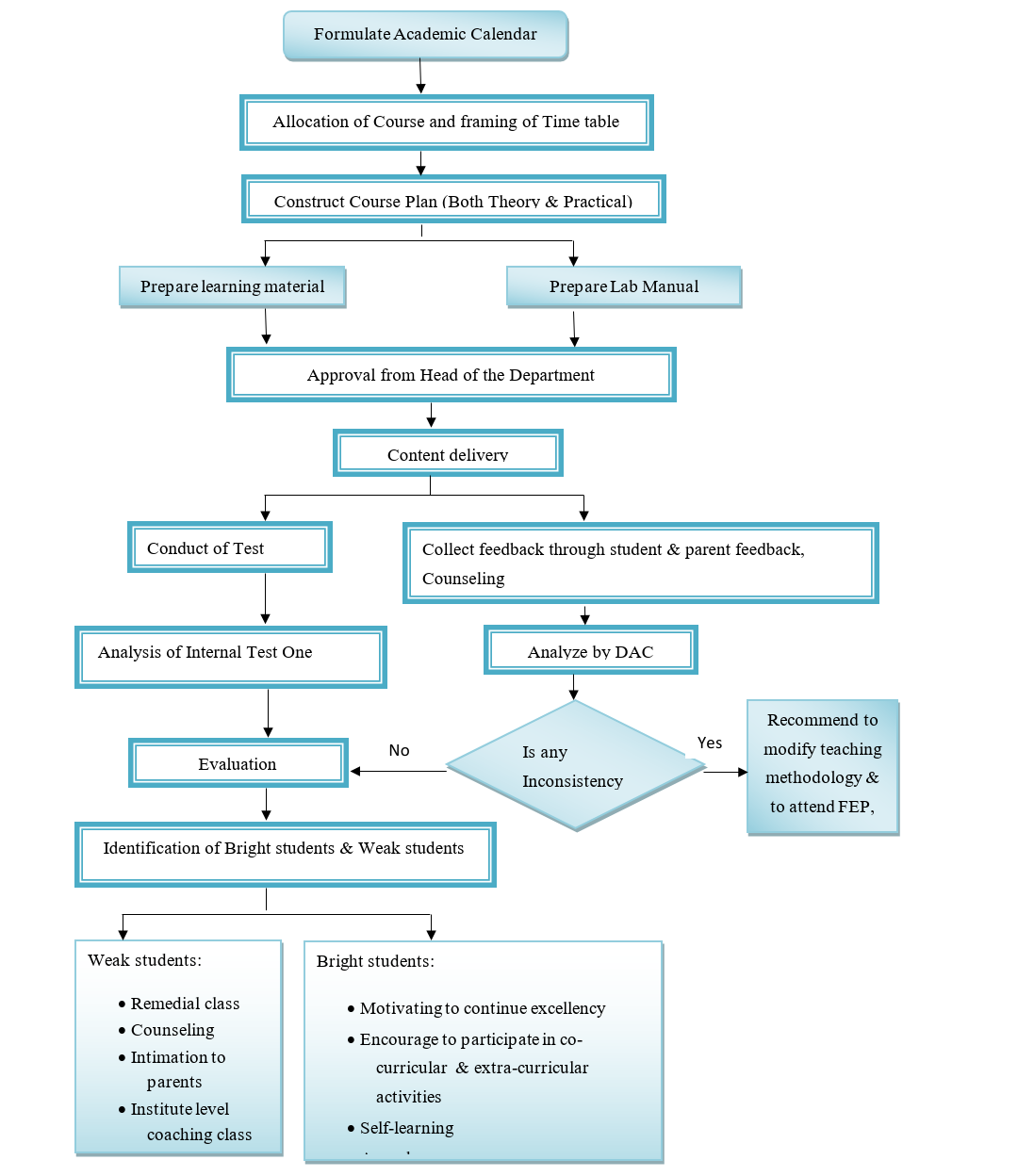
Figure: Teaching and Learning Process Flow Chart
To ensure effective teaching learning environment, the following are the initiatives taken by the department.
- 1. Meditation is practiced daily for 05 min in the first hour on all working days.
- 2. Singing of National anthem is also practiced daily at 4.00 pm on all working days.
VALUE ADDED COURSES
-
The Department of Electronics and Communication Engineering is organizing the
value added courses to all the students. The main objective of this course is
to equip the students in current technologies and also to reduce the gap
between academic and industry.
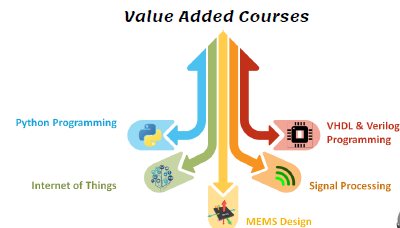
NPTEL BASED LEARNING
-
NPTEL based online courses are attended by the faculty for enhancing their teaching skills
and smooth conduct of the teaching process in the regular class room teaching. Some of the
interested faculty are supported to register for the NPTEL program/subject online certification
course of their own areas of teaching and research interests. Similarly, students are supported
with NPTEL video lectures in the central digital library and a data bank of the CD’s of all the
NPTEL courses are made available in the department library. Additionally, interested students are
also encouraged to register for NPTEL certification courses for enhancing the potential concepts
much effectively.
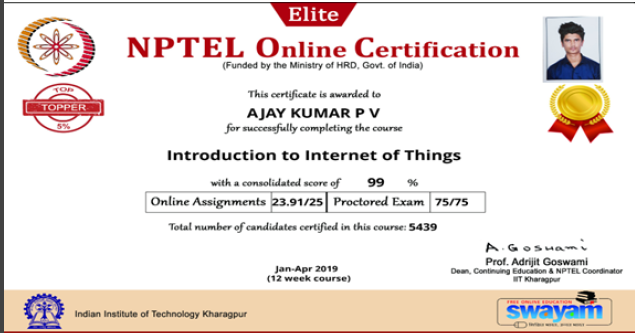

E-LEARNING
-
The central library has a vast collection of books, journals, magazines, e- books, project reports, etc
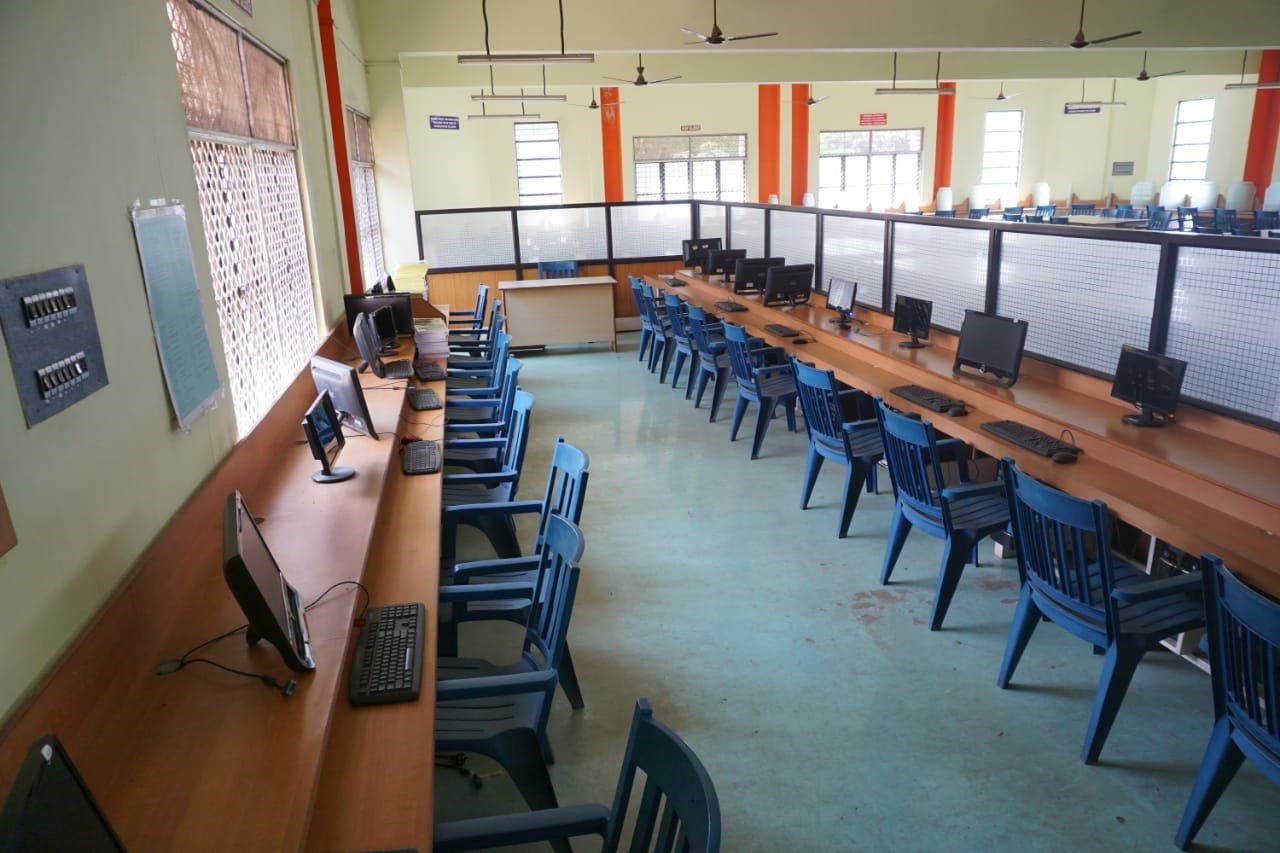
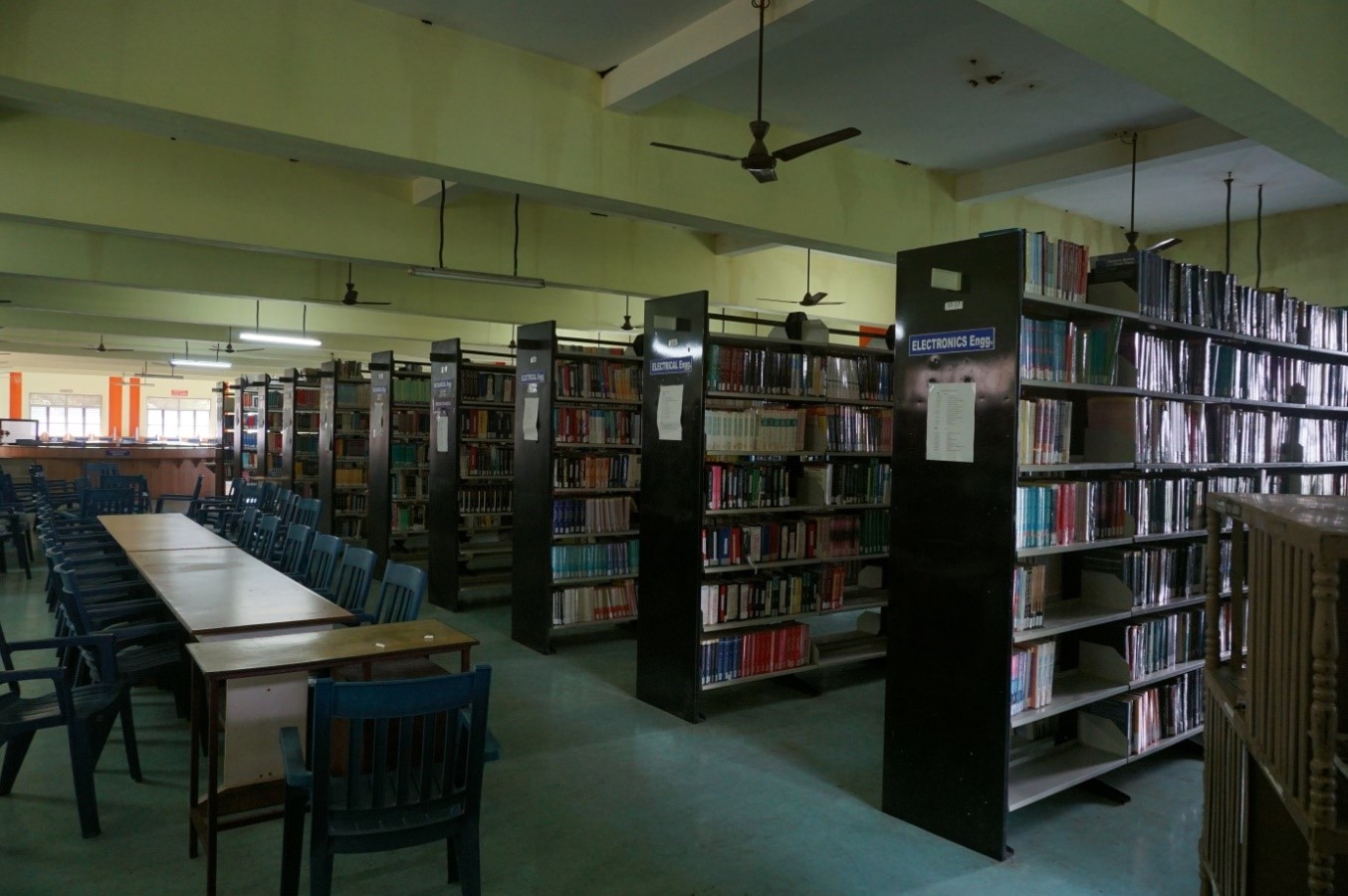
Figure: Independent Learning using Digital Library and Independent Learning using Library